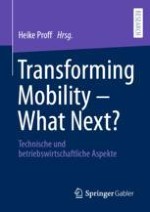2022 | OriginalPaper | Buchkapitel
12. Energy Management Strategy for Electric Vehicles and Connected Renewable Energy Systems in a Micro Grid Environment of a University Campus
verfasst von : Bedatri Moulik, Bibaswan Bose, Ahmed M. Ali, Dirk Söffker
Erschienen in: Transforming Mobility – What Next?
Verlag: Springer Fachmedien Wiesbaden
Aktivieren Sie unsere intelligente Suche, um passende Fachinhalte oder Patente zu finden.
Wählen Sie Textabschnitte aus um mit Künstlicher Intelligenz passenden Patente zu finden. powered by
Markieren Sie Textabschnitte, um KI-gestützt weitere passende Inhalte zu finden. powered by
